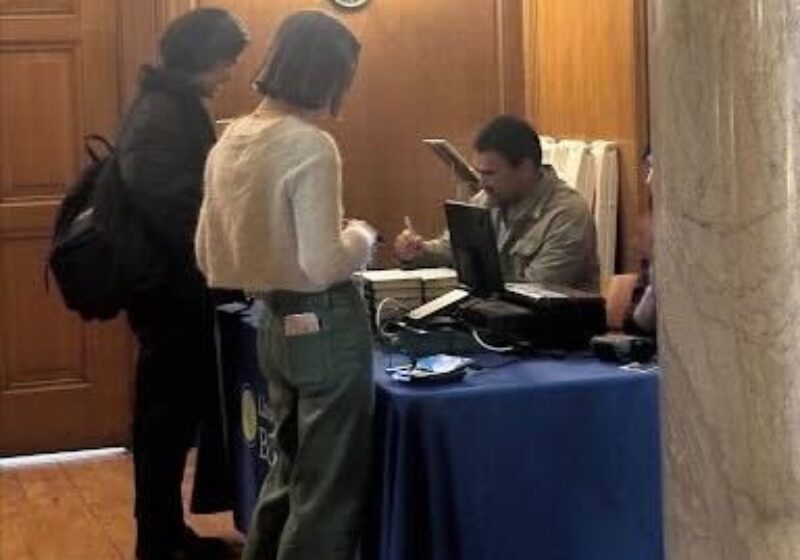On Tuesday, Sept. 27, Samuel Eshaghoff, a 19-year-old Emory University sophomore, was arrested on the charge that he accepted money to take the SAT for six high school students from Long Island.
According to The New York Times, Eshaghoff charged the students — whose names have not been released because of their age — up to $2,500 for his services. He has been arrested on criminal charges, while the high school students were charged with misdemeanors.
After hearing of this event, Dean of the College Richard Feldman said he felt “distressed.”
“I wonder how widespread [this issue] is,” he continued. “I wonder how significant it is, and it did make me think — what role [should these tests play] in light of this?”
Dean of Admissions and Financial Aid Jonathan Burdick explained that standardized tests are only one factor used to assess students. He pointed out many other important features that are examined, including academic preparedness, leadership, individual thinking, community involvement, curiosity and unusual talents, among many others.
“The tests themselves are designed to do what they claim to do — help us predict first year college grades,” he said. “They’re not designed to predict who will graduate or who will get the most from this experience.”
A number of students thought that standardized testing does have a role in the college admissions process, specifically because it may level the playing field.
“I think there does need to be some kind of standardized evaluation of students because high school instruction differs so greatly,” senior Leah Miller said.
Others disagreed, citing the inequalities in the process.
Senior Rachel deLahunta explained that it is unfair because those who have enough money to hire a tutor or buy review books and have more time to study for tests will have a greater advantage.
Freshman John Wilson believes that although standardized testing has its place, it should not be the used as a final decision-maker.
“The SAT can be used to easily narrow people out, but it shouldn’t be used as the last factor,” he said.
Burdick expressed similar concerns, noting that family income has a strong correlation with test scores, diminishing the importance of these scores in measuring the educational strength of a given college or university.
“The negative is the many misuses of these tests — suggestions that they tell us more than they can,” he said.
So what is next?
UR is in a constant state of evaluation. Burdick explained that there have been many conversations about the use of standardized tests and the different potential options.
He noted that “almost all” members of the faculty, administration and student body have been interested in altering the way the University uses the tests, but there has been little true movement toward adjustment.
Senior Mark Carson thought that one-on-one interviews with students, a technique that is already used, are a more effective evaluation method.
“You can assess the actual person better that way,” he said.
Stress is also an issue in this discussion of standardized testing.
“Students feel a great deal of pressure about getting into colleges — I think they see it as a very competitive thing, and they believe that test scores make a difference, so they’ll do things that will improve their chances,” Feldman noted.
And standardized testing is, it seems, on the minds of prospective students. Junior Paul Vergara, who works in the UR Admissions office as a meridian, described how many of these students worry about standing out in their applications in terms of test scores even if they have done a myriad of extracurricular activities in high school.
“They feel like they have to be on the top of their game in terms of these tests, because they don’t think that they’re going to be noticed at all,” he said.
These kinds of worries, it seems, may be what leads to cheating.
“Incentives to cheat have always been substantial, and they grow more so as people perceive that tests scores are the path (or barrier) to opportunities in this country,” Burdick said.
UR has severe consequences for cheating on the standardized tests. Burdick explained that if the school discovered a student cheating on one of these tests, he or she would be expelled immediately or have his or her admission revoked.
Even long-time students caught cheating would have all of their coursework at the University negated.
Will UR be evaluating the use of standardized testing in light of this recent testing scandal? The answer is no, according to Burdick. “No one … has described this incident as a specific basis for a more urgent evaluation,” he stated.
Goldin is a member of the class of 2013.



